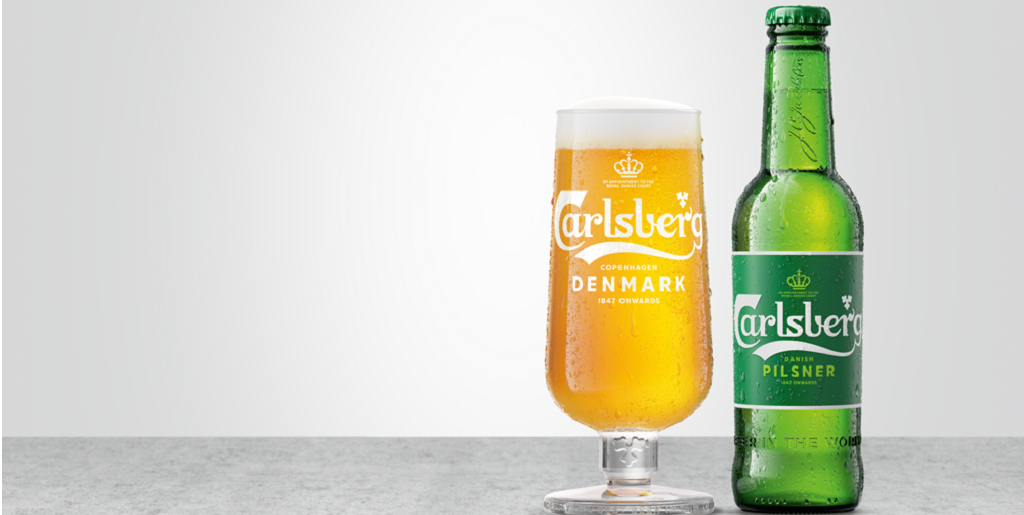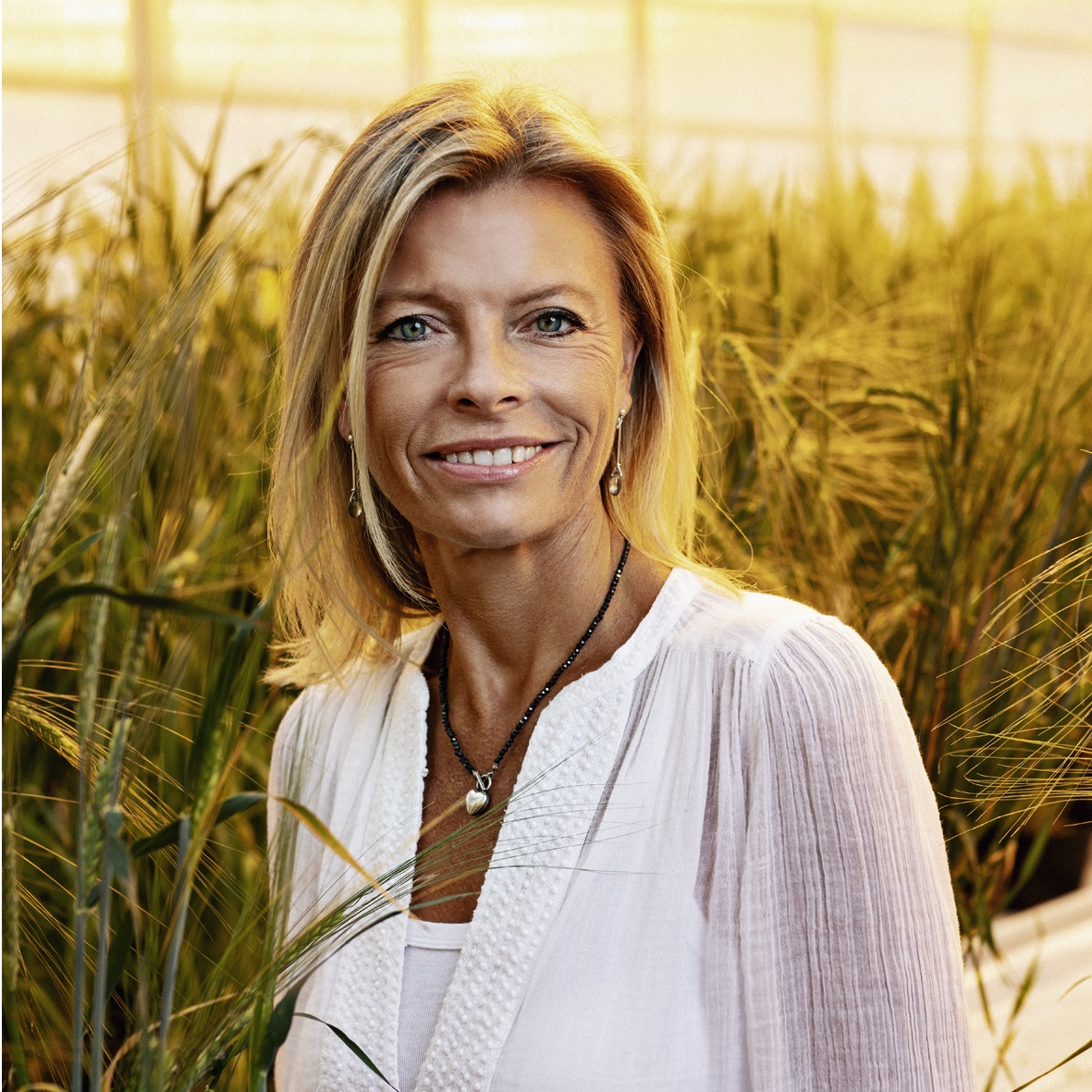
Sustainability is our responsibility says Carlsberg research VP

Sustainability should be everyone’s focus, and Carlsberg is looking to share its innovations in raw ingredients as part of its commitment to this idea, says Birgitte Skadhauge, vice president of the Carlsberg Research Laboratory in Denmark, who was attending the TropAg conference in Brisbane earlier this month.
She said that sharing knowledge is key to improving and developing sustainable practices in the industry when it comes to everything from raw materials to water usage and recycling.
Skadhauge told Brews News that it was part of Carlsberg founder J. C. Jacobsen’s “special mindset” that “everyone should always strive for something better, something new, something that could help improve the general way of living”.
“This is something that we follow today in our mindset,” she said, “because especially now with climate change and all the things we see happening in the world, it’s more important than ever that we make a better and stronger effort in order to do something more to help solve some of those problems.”
Carlsberg, which is brewed under licence by Coopers in Australia and brewed 12 billion litres of beer across 140 brands worldwide in 2018, announced last week that as part of its focus on sustainability, dubbed ‘Together Towards ZERO’, all its Carlsberg Pislner 330ml bottles will feature “oxygen scavenging” bottle caps which remove oxygen from the head space in bottles.
Carlsberg said this would reduce flavour oxidation and result in fresher beer for a longer period.
It also introduced new label inks which are “greener” according to the Danish brewer, and help maximise the bottles’ recyclability.
This comes after a change in direction for the brewer earlier this year, replacing its original slogan with “probably not the best beer in the world” in acknowledgement that it had begun to focus on quantity rather than quality. It re-brewed its Danish Pilsner and said it was using “innovative” glue technology to reduce plastic use in its packaging.
Skadhauge, who holds a PhD in biochemistry and genetics, has led Carlsberg’s raw materials research since 2003. She said that Carlsberg felt it had a responsibility to look throughout its supply chain, all the way down from packaging to raw ingredients when it came to efforts to minimise waste and environmental impact.

Birgitte Skadhauge
Her presentation at TropAg focused around Carlsberg’s research into barley genetics and trait breeding, in the hopes that varieties will be developed that are more resilient to climate change, notably drought and extreme heat which are major issues for Australian farmers – which have already prompted other brewers such as 4 Pines to look into sustainability in their supply chain.
The research laboratory in Denmark which Skadhauge leads aims to develop quality and sustainability traits in primary raw materials, as modern breeding techniques have produced high yield varieties, but from a limited genetic background. This lack of diversity means that any environmental changes could severely affect the viability and continuity of existing varieties.
However the Carlsberg research lab also focuses on quality in the brewing process, where other laboratories and research centres may not focus on this specific outcome.
“We focus on high quality, if the beer tastes bad no one wants to drink it or buy it again,” Skadhauge said.
“We emphasise constant improvement of quality [in beer], but also improvement of our yeast and raw materials like barley hops an the process around them.”
She said that genetically modified organisms (GMO crops) were not considered acceptable, but by traditional and targeted breeding, as well as accelerated trait identification, varietals could be developed which are more resistant to extreme weather.
“We are using the traditional barley breeding and trait identification technology for a much faster and in a more targeted approach,” she said.
Genetic sequencing
The team can undertake the ambitious task because in 2017, Carlsberg’s foundation and research laboratory was part of an international consortium that sequenced the barley genome.
“Understanding the genes and having the genes on hand has given us a fantastic toolbox now to make new properties and traits in our raw materials and crops for the future,” Skadhauge said.
“Compared to other plant breeders, we are not just looking at yields… we have dedicated it back to the brewing process and the malting process, where do we want to change things, how can we improve flavour, how can we improve freshness, how can we save water, how can we find more drought-tolerant plants and save energy in general through the barley development?”
She said that the technology will not be only available to Carlsberg and its suppliers, in that the major brewer will share it to all interested plant growers.
“It’s quite an early stage, but it’s important to get that feedback from the farmers, if these things aren’t working in the field for the farmers, we have a problem all the way up the chain to the brewery. “
When it comes to the traits that actually make a varietal resistant to drought or other extreme weather patterns, it gets a bit more complicated as well.
“It can be many many different traits [to create an effective drought tolerant variety] you make a kind of selection of barley plants that are genetically different and then you can go out and select those ones that are heat or drought tolerant, or you can go in and find small changes in the plant genome where you can fix heat tolerance or root length, or flowering time.
“There are many, many factors and we’re trying to take one thing at a time and also combine them.”
She said that Carlsberg had worked with a number of partners in WA and South Australia including the University of Adelaide.
“Having the possibility to test and collaborate with fantastic Australian partners has really benefited our programme here, so we’re happy about that for sure,” she said.
Craft beer
When it comes to collaborating with the independent sector, Skadhauge said that Carlsberg and the other big brewers understood that craft brewers did not have access to anywhere close to the resources of mainstream brewers.
“It takes resources and scientific input,” she admitted, “it’s a costly exercise, but it’s important we are open and share many of these new findings to make the world better in the future.”
Skadhauge said this sharing of knowledge was pivotal, so even if smaller brewers could not make the sweeping changes to processes and ingredients (such as its plans to reduce water usage to 1.7 litres of water per litre of beer in its breweries by 2030) they could still play their part.
“The smaller craft brewers are probably using three or four times more water than a standardised brewery for example, but some small improvements here and there can make a big improvement, because the whole craft brewing industry is really significant today.”
It was an industry-wide responsibility to find ways to be sustainable, whatever your size, she said.
“I think if [smaller brewers] follow what’s going on in the industry, a lot of them see innovation.
“We’re quite willing to share this information, so if they put it on the agenda, be aware of it, and find some alliances and partnerships to implement and test these things, then they can go from there.
“There are so many possibilities,” she said.



